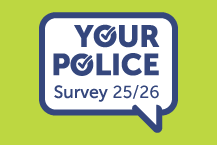What is hate crime?
Hate crime is behaviour which is both criminal and rooted in prejudice.
The legal definition of hate crime is "any crime which is understood by the victim or any other person as being motivated (wholly or partly) by malice or ill will towards a social group."
Which groups are covered?
The groups or ‘protected characteristics’ covered by the hate crime legislation are:
- Age
- Disability
- Race, colour, nationality (including citizenship), ethnic or national origins
- Religion or belief
- Sexual orientation
- Transgender identity
- Variations in sex characteristics
The person experiencing hate does not always need to be in one of these groups. We look at why the act or offence was committed and the perceptions of those involved.
Hate crimes can be verbal or physical and include:
- threatening behaviour
- verbal abuse or insults including name-calling
- assaults
- robbery
- damage to property
- encouraging others to commit hate crimes
- harassment
- online abuse on sites like Facebook or Twitter
If someone targets you, or someone else, because of a dislike or prejudice of your age, disability, race, religion, sexual orientation, transgender identity or variations in sex characteristics then you should report it as a hate crime.






